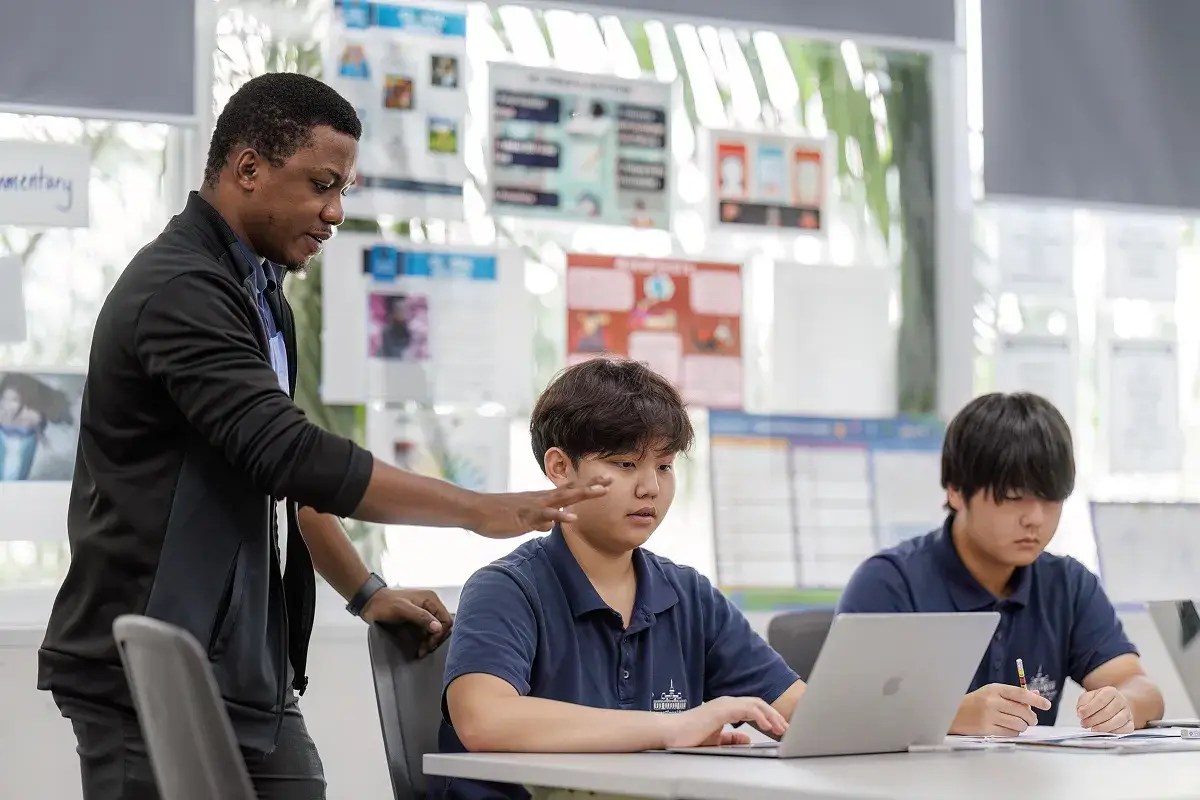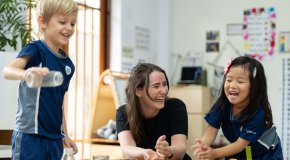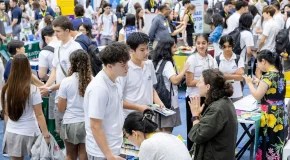Developing Research Skills at ISHCMC
In today’s rapidly evolving world, the ability to research, think critically, and apply knowledge is more essential than ever. At the International School Ho Chi Minh City (ISHCMC), we are committed to preparing students for a future where information is abundant and constantly changing. We foster future-ready research skills from an early age to help our students become confident, curious, and capable learners who thrive in the classroom and beyond.
How Education Has Changed Over Time
Even as recently as 5-10 years ago, education in school had not changed significantly when compared to the last 50 years. Computers began to creep into classrooms in the 1980s, the Internet brought the Information Age in the late 1990s, and mobile devices like the iPad and portable devices like the MacBook created opportunities to learn anytime, anywhere in the first two decades of the 21st Century. But formal education and research practices essentially looked the same as they did throughout the 20th Century. However, this is not to say that “learning” has stayed the same.
For the better part of twenty years, people have now been turning to Google searches, YouTube videos, sites like WikiHow, and other digital resources to learn a variety of facts and tasks like how to fix a leaky faucet, interesting ways to decorate a cake, how to sing harmony, the cleanest way to change the oil in your car, and more. And this is the digital environment that we face in schools when preparing our students to thrive and succeed in their future.
Gone are the days when teachers and librarians were the sole providers of content knowledge. At ISHCMC, educators and staff still provide some content and direction, but more importantly, we empower our students to discover information through the tools they have access to. The role of teachers and staff has been transitioning to provide the context of why this information is important rather than to focus merely on finding the content.
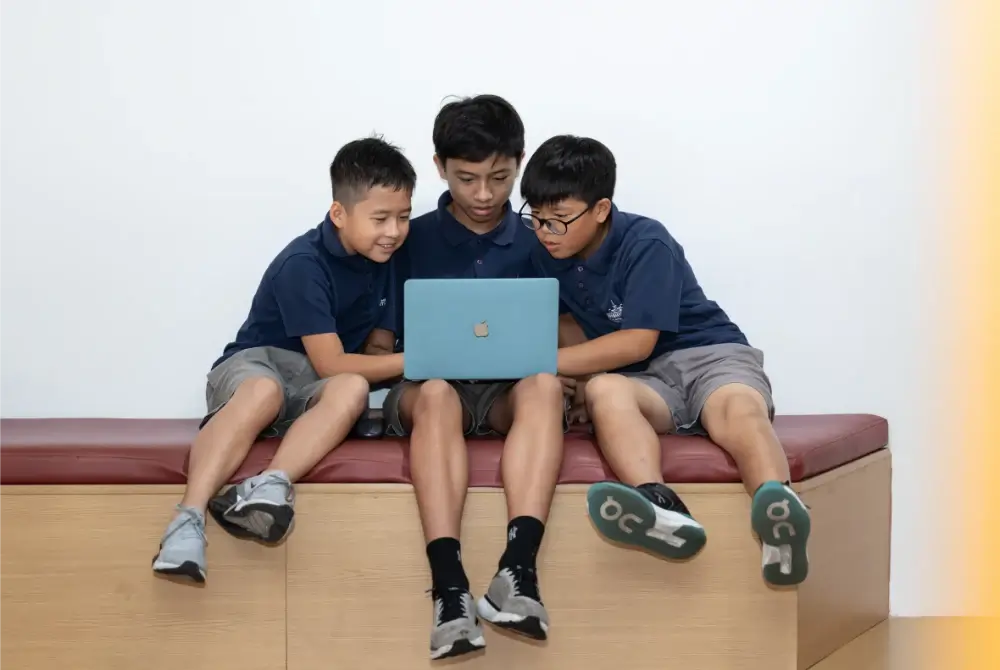
Why Research and Critical Thinking Matter More Than Ever
Developing research and critical thinking skills is quickly becoming one of the most important abilities for our students to have. They more confidently access information, assess the relevancy of it, and apply their newfound knowledge.
To support this at ISHCMC, we actively develop future ready research skills that begin with understanding how to use web searches and AI tools, and, more importantly, to think critically about the information and how to verify it. Additionally, we want students to be able to consider how this information is relevant to their life and the unit of inquiry. Ultimately, this helps them better understand the material and how it applies to other concepts.
And this approach is backed up by research from global organizations like the World Economic Forum. For the last decade, the WEF has been working with global employers to look at the technological, societal, and economic trends across the world and how they impact the skills needed to succeed at work.
Top 10 In-Demand Skills for 2025 and Beyond
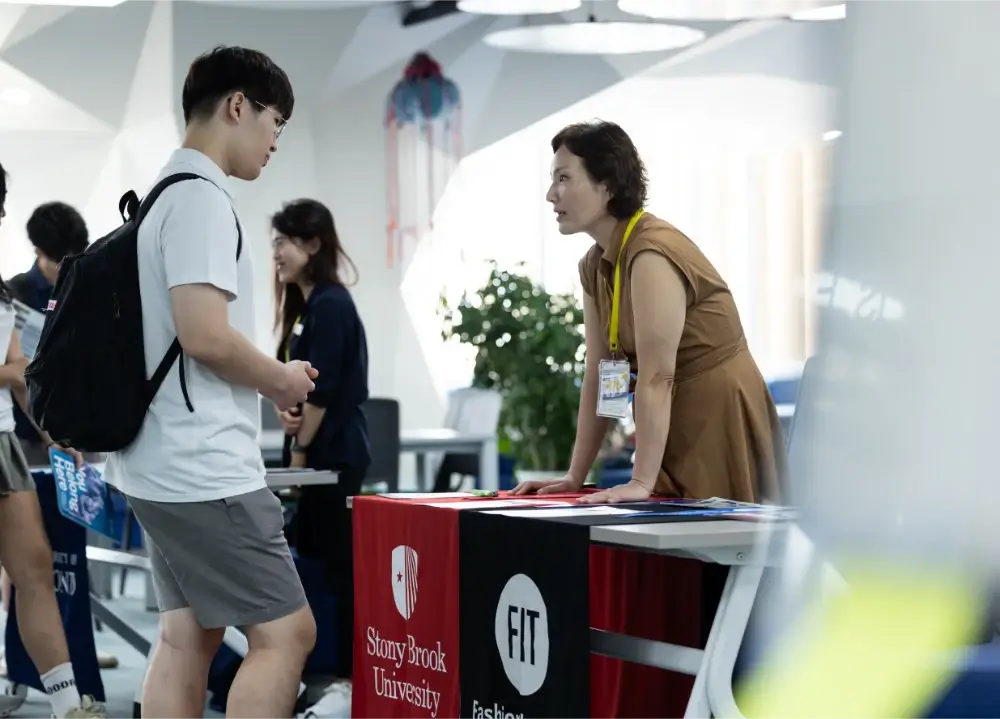
In their 2025 Future of Jobs survey, the WEF found that four out of the top ten skills all reinforce this new way of developing research skills:
- AI & Big Data
- Networks & Cybersecurity
- Technological Literacy
- Creative Thinking
- Resilience, Flexibility & Agility
- Curiosity & Lifelong Learning
- Leadership & Social Influence
- Talent Management
- Analytical Thinking
- Environmental Stewardship
And it’s not only the World Economic Forum. Thought leaders from the Durham Commission, The Centre for Real-World Learning, and Digital Promise, just to name a few, have all focused on the power of Creativity to boost engagement, education, equity, and innovative thinking. Additionally, PISA (Programme for International Student Assessment) has been measuring language skill development in the frame of critical and creative thinking.
How ISHCMC Nurtures Future Research Skills
So how do we get there? Whether navigating AI, developing technological literacy, encouraging curiosity & lifelong learning, or supporting analytical thinking, the ISHCMC focus on research skills for the future will help our students be successful in discovering, analyzing, and using information whether it’s through listening to a podcast, watching a video, reading a book, exploring a website, or crafting deep questions with an AI chatbot.
Research in Action: ISHCMC Primary
At ISHCMC Primary, teachers are beginning to curate content for students to develop knowledge on a topic. Students often get choices for how they best learn a topic. These choices are key in developing the natural curiosity required for deep inquiry and research skills. Then using organizational apps like Notes and Freeform, students are analyzing and synthesizing information. At the end of units, students find creative ways to express their knowledge through podcasts, songs, presentations, and more.
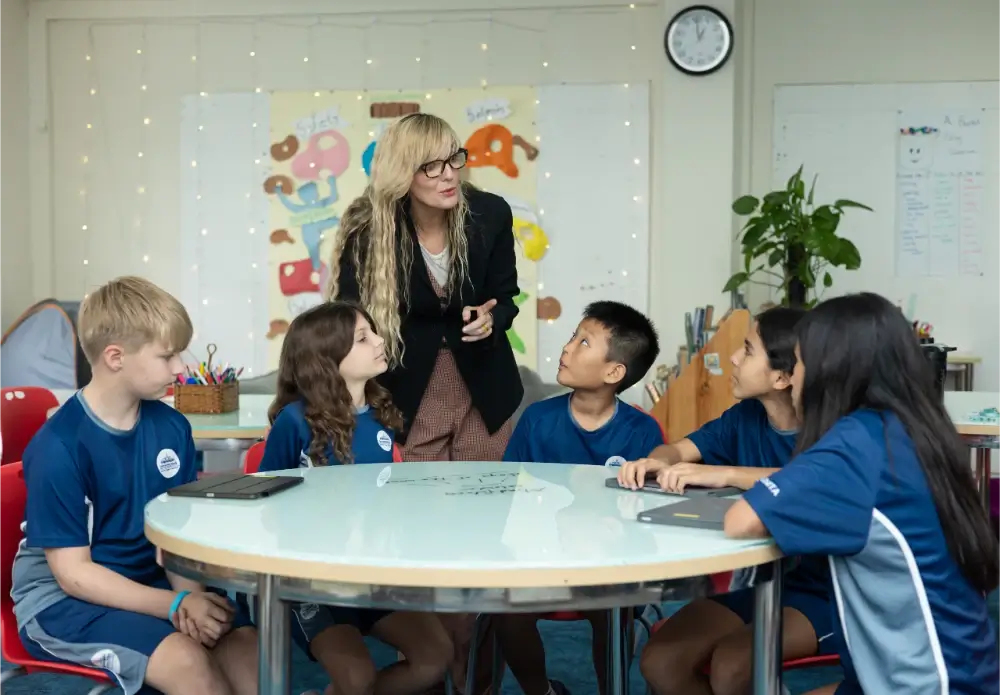
Deepening Inquiry with AI: ISHCMC Secondary
At ISHCMC Secondary, students in several classes are using Flint AI more deeply, leveraging the chatbot to both discover and deepen knowledge on a topic. The teacher can observe the chats and highlight specific students for their use of inquiry. At the end of sessions, the Flint AI tool highlights some of the strengths and areas for improvement that students can make with their inquiry. With the knowledge, students are able to then complete their assignments.
Whether at Primary or Secondary, students are digging deeper to research and understand concepts so that they are able to connect to ideas and relate to them. Being able to relate to material means that students are better able to transfer knowledge and express mastery through a variety of mediums. Critical thinking, creative thinking, and inquiry are all at the heart of using digital tools more effectively for future ready research.
Reinforcing ATL Skills Through Digital Inquiry
If these skills sound familiar, they should. Our process of empowering our students to use research skills modernizes and effectively reinforces the Approaches to Learning (ATL) Skills. The way our students find and engage with digital tools for research impacts all the ATL Skills in some way, but especially the categories of Self-Management, Research, and Thinking. We believe that digital tools, when used intentionally, help our students strengthen and demonstrate the ATL Skills in real-world, effective ways. Having technology alone isn’t enough. We’re working to guide our students to use technology innovatively in ways to amplify and accelerate learning. These future ready research skills are just one way that we prepare our students through innovation.
Research Skills That Empower Life-Long Learners
At ISHCMC, research education goes beyond teaching students how to find information. We guide them to question sources, evaluate relevance, apply their findings, and reflect on how knowledge connects to real-world contexts. Future-ready research is not solely about technology. It is about cultivating a mindset that values curiosity, critical inquiry, and purposeful learning. These skills enable our students to grow into confident learners, thoughtful problem-solvers, and compassionate leaders prepared to navigate an ever-changing world. Discover how ISHCMC prepares your child with the skills and mindset to thrive in the future. Apply now

